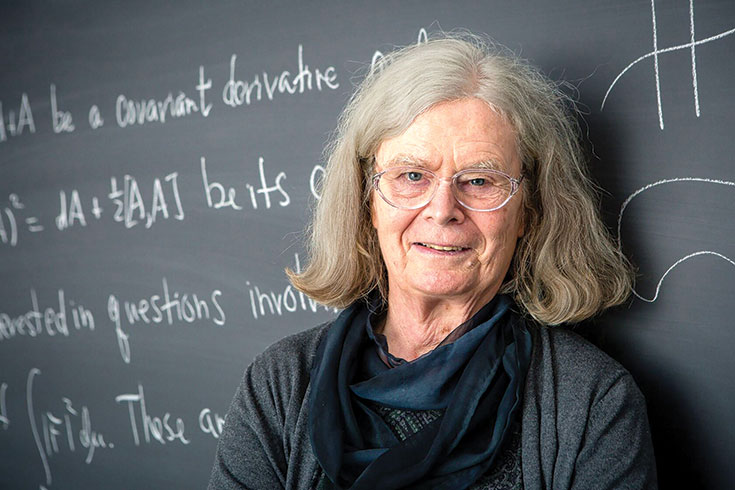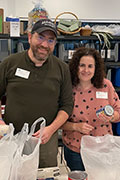‘The Best Option’

Karen Uhlenbeck, GSAS MA’67, PhD’68, H’08
Part of Exceptional Results
“My decision to enter graduate school at Brandeis University was one of the best of my career,” says mathematician Karen Uhlenbeck, GSAS MA’67, PhD’68, H’08.
Uhlenbeck, an emeritus professor at the University of Texas at Austin and Distinguished Visiting Professor at the Institute for Advanced Study, in Princeton, New Jersey, pioneered the fields of modern geometric analysis and gauge theories, used to describe the behavior of subatomic particles.
In 2019, she became the first woman to win the Abel Prize, awarded by the Norwegian Academy of Science and Letters, and considered the Nobel Prize for mathematics.
Uhlenbeck has also been a lifelong advocate for women in the field of mathematics, and co-founded the Women and Mathematics Program at the IAS to address the field’s gender imbalance.
Growing up in Cleveland, she was a voracious reader but didn’t discover her passion for math until college. “The structure, elegance, and beauty of mathematics struck me immediately, and I lost my heart to it,” she wrote in an essay for the 2009 book “Mathematicians: An Outer View of the Inner World.”
When she was ready to pursue an advanced degree, she looked for a university that was hospitable to women, who were radically underrepresented in the field at the time.
“I was fearful of the attitude toward and the treatment of women at the more elite, established PhD programs at Harvard and MIT,” she says. “The faculty in mathematics at Brandeis were young and had not been directing exclusively male graduate students for decades. It seemed like the best option.”
Like Lamport, she studied with Richard Palais, who was working in a branch of mathematics called global analysis. (She also took up swimming at Brandeis, which became a lifelong habit.)
After graduating and entering the job market, she was frequently told women belonged at home, having babies, a very different attitude than she encountered as a PhD student.
“At Brandeis, I benefited immensely from the combination of an enlightened attitude toward women and an introduction to cutting-edge mathematical research,” she says. “Few students have been so lucky.”
